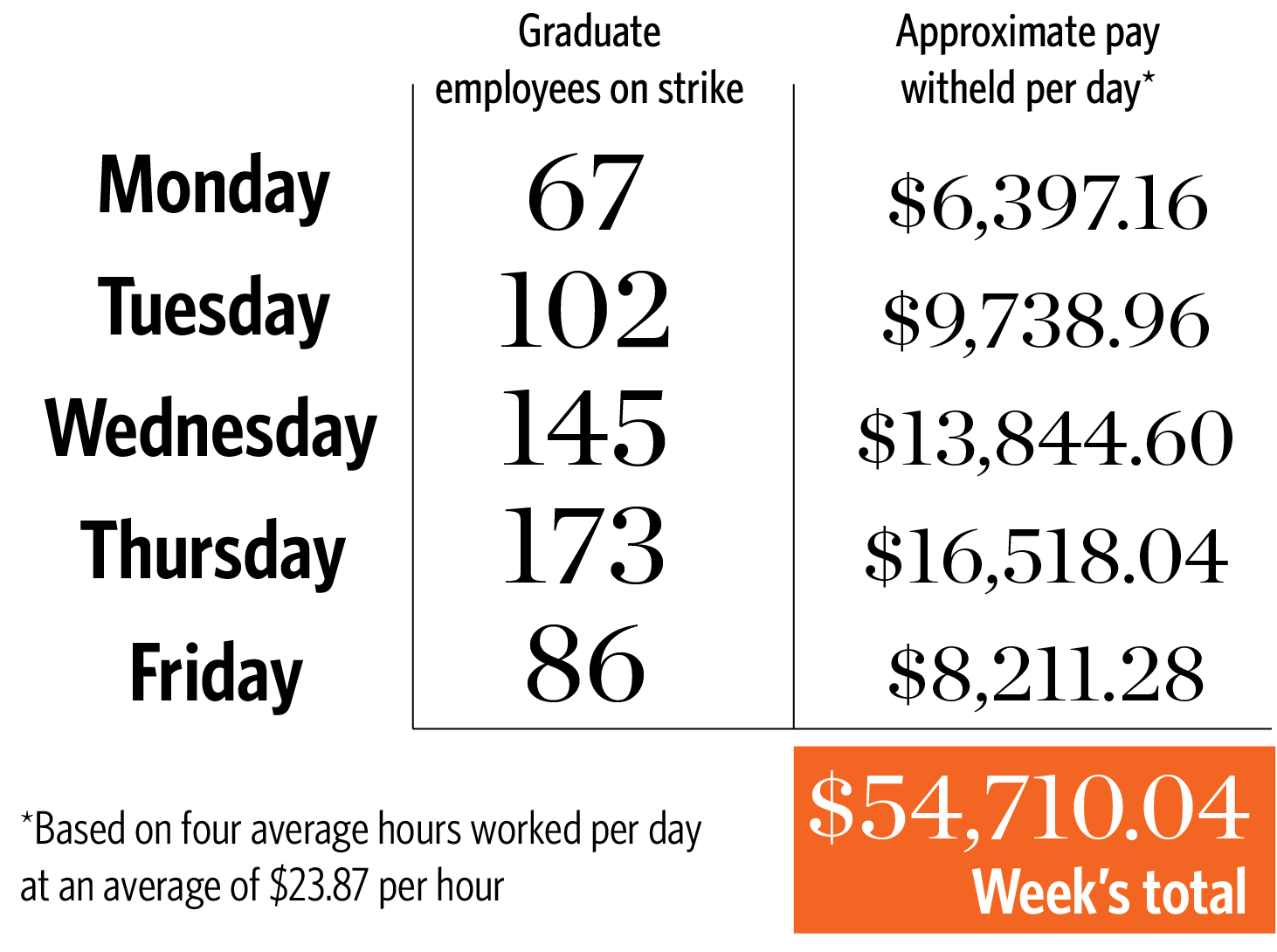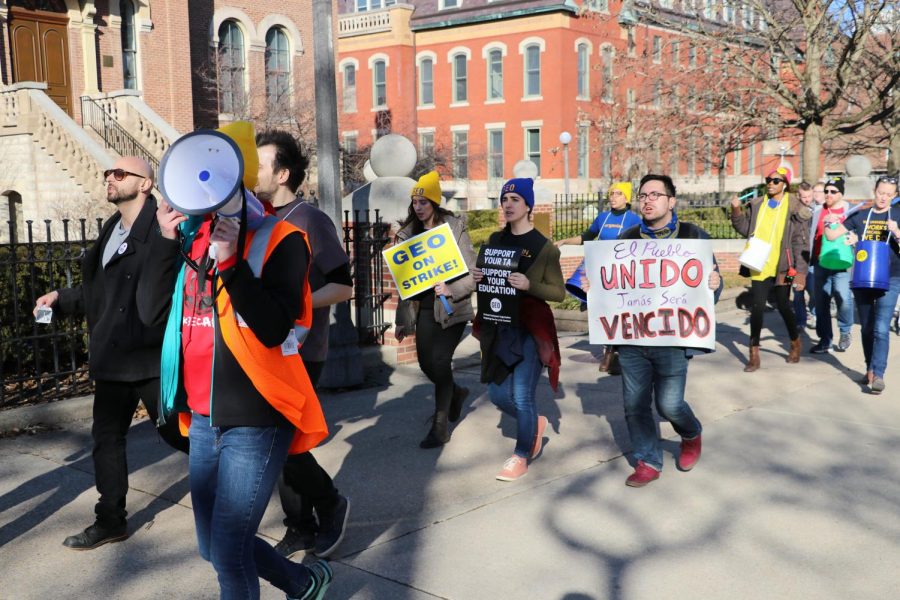Students raise questions of refunds over class cancellations
GEO protest on the Quad on Monday.
March 4, 2018
As contract negotiations between the University and the Graduate Employees Organization and the GEO’s strike continue, students are experiencing class cancellations and other negative side effects of the strike.
According to information collected across colleges, a total of 466 classes were cancelled in the first week of the strike.
These class cancellations have led some students to consider demanding possible refunds or compensation from the University, as well as how money withheld from graduate employees will be used.
Robin Kaler, associate chancellor for public affairs, said the administration has no plans to offer compensation or refunds to undergraduate students for classes they have had cancelled.
“Giving refunds is not helpful. What is helpful is delivering education,” Kaler said.
Get The Daily Illini in your inbox!
Gus Wood, co-president of the GEO, said picket lines and strikers have been increasingly disruptive to education, shutting down buildings and class meetings. He said, though, they have accomplished what they set out to do by emphasizing the importance of TAs.

Source: Robin Kaler and UI Human Resources
“We have multiple members and undergrads posting on social media on how their professors don’t know how to (use the) technology or how the professor needs the TA,” said Wood.
Kaler said the University is attempting to keep classes going during the strike by moving classes from picketed buildings, offering online classes or getting substitute teachers.
Some students, like LAS sophomore Lauren Castaneda, said they think attempts by the University to continue classes have been insufficient. Castaneda said she feels students should be entitled to some type of compensation for cancellations and the decrease in education quality.
“I personally paid for my classes out of pocket. I work hard to pay for my classes. Just knowing that I can’t go to them and I am still paying for them, I definitely think we should be refunded,” Castaneda said.
Other students are not sure compensation for students is the right option. LAS senior Andrea Baldwin said refunds for students might not be feasible, but something may need to be done depending on the length of the strike.
“I think if the strike were to last longer in the sense that it was going to greatly affect undergraduate education, then there would be an issue,” said Baldwin. “I don’t know if compensation is the (solution) for that. That would be very difficult. But they have to come up with some type of agreement.”
The situation seen here is being paralleled elsewhere. On Feb. 28, the Huffington Post reported that lecturers across colleges in the United Kingdom were on strike. Fourteen days of striking over four weeks caused many classes to be cancelled, leading students to demand refunds. Different from the administration’s approach to the GEO strike, however, the British government recently announced it would back students in their calls for compensation, according to the article.
Another concern of students is how the money withheld from TAs and graduate students will be used. Based on information reported by colleges across campus and provided by Kaler, the number of graduate employees withholding their labor increased throughout the first week of the GEO’s strike, dipping on Friday. The total amount of pay withheld from strikers has continued to rise, since the University is not paying employees while on strike, Kaler said.
According to the University’s human resources website, on average a graduate employee is paid $23.87 per hour and earns approximately $2,145.34 monthly. The average number of hours worked per week is 20 hours, which, divided by 5 work days a week, equals approximately 4 hours of work per day.
Using this information and the approximate number of strikers per day, by the end of the first strike week, the amount of pay withheld from graduate employees on strike totaled approximately $54,710 dollars.
Baldwin said she was concerned how money withheld from graduate employees would be used if not for education.
“I wonder what they will use that money for,” said Baldwin. “Will it go toward more academics or will it go toward a cause we don’t know about?”







